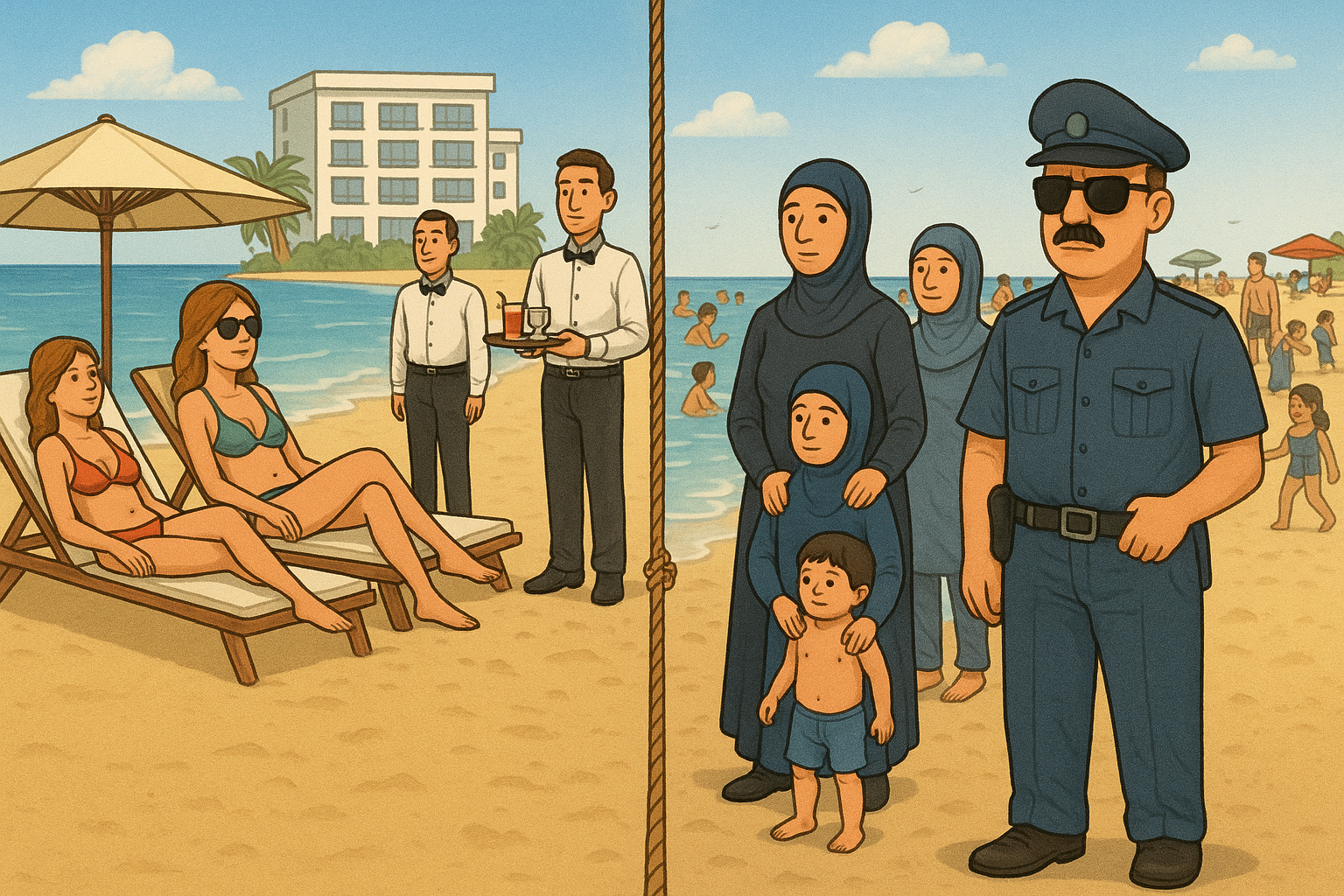Bikini for the Rich, Burkini for the Poor: A Reading of the Syrian Ministry of Tourism Decision

In a decision that sparked wide controversy, the Syrian Ministry of Tourism announced that beaches belonging to resorts classified as 4 stars and above allow the wearing of swimwear (bikini), while visitors to lower-rated resorts or public beaches are required to adhere to the religious dress known as burkini.
At first glance, the decision may seem like an attempt to regulate public behavior on beaches or to achieve a kind of "cultural harmony." However, upon reflection, it becomes clear that the essence of the decision is not about modesty or openness, but about cementing a blatant class distinction based on one's financial ability, rather than on clear legal or ethical grounds.
Dual Standards:
The decision implicitly assumes that personal freedoms – such as choosing swimwear – are not fundamental human rights, but privileges granted in exchange for money. The wealthy who can afford to enter a five-star resort have the right to freely express themselves and wear what they want, while the poor are forced to adhere to "societal values."
This approach is not only exclusionary but also empties the concept of modesty of its meaning, turning it into a tool controlled by prices rather than values.
Are We Facing Surveillance or Display?
If the ministry were truly serious about preserving "public decorum," it would apply the same rules to all beaches. Linking moral discipline to hotel classification reveals a deep flaw in public administration philosophy, equating law with pricing.
What is even more concerning is that these types of decisions encourage social division and deepen the gap between societal classes:
The poor must be "conservative."
The rich can be "open-minded."
And the "state" monitors appearances, not substance.
Impact on the Country's Image:
At a time when countries strive to present themselves as inclusive tourist destinations that respect diversity, this decision divides even the freedom of dress according to tourism classifications. This not only reflects on the internal Syrian situation but distorts the country's image globally, revealing a stark contradiction in the tourism discourse:
How can tourism and openness be promoted while imposing moral restrictions only on the poor?
How can slogans of "welcoming everyone" be raised while restricting dress based on financial ability?
What we need today is a fair, unified approach that respects personal freedom for all, and distinguishes between the moral and class domains. Respecting dress should not be about imposing it on one group over another, but about setting clear standards that include everyone or allowing people choices that do not violate the law or harm others.
While this decision may seem like a small detail, it carries within it a miniature model of a larger flaw in the view of citizens and in understanding the meaning of rights and freedoms. Freedoms should not be measured by tips or hotel classifications. Either we believe in individual freedom and dignity, or we acknowledge that we live in a reality where class even controls the "square meter of fabric."